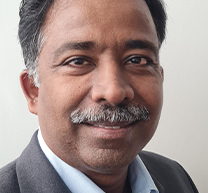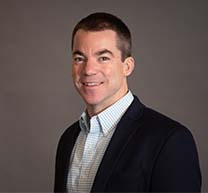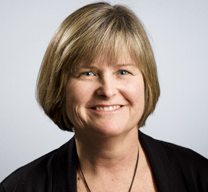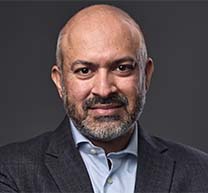GEC、レスポンシブル・ビジネス2024年次会議に参加
進化する持続可能なエレクトロニクス:次世代EPEAT基準に向けたサプライチェーンの準備
2024年11月21日午前9時~午後12時(太平洋標準時
EPEATエコラベルは、購入者、電子機器ブランド、その他の利害関係者が、製品が「持続可能」であることの意味について共通の定義を持つことで、20年近くにわたりテクノロジー市場において重要なシグナルとなってきた。この定義は、EPEAT基準の改訂に向けたマルチステークホルダーによる長年の努力の末に進化しており、この分野における期待の高まりに応える新たなベンチマークを作り出している。次世代EPEAT基準は、グローバル・コミュニティの基準を引き上げるだけでなく、サプライチェーン・パートナーとの対話を大幅に増やす必要があります。
グローバル・エレクトロニクス・カウンシル(GEC)は、Responsible Business 2024年次会議において、持続可能な製品開発におけるサプライチェーン・パートナーの重要な役割(EPEATエコラベル基準の今後の改訂に対応するための最終組立および部品メーカーの役割を含む)に関する対話型イベントを開催します。
これらの基準改訂と、以下の4つの重要分野に対応するサプライヤー固有の要件を探る:
- 責任あるサプライチェーン
- 気候
- 円形
- 化学物質
さらに、Responsible Business Alliance(RBA)およびResponsible Minerals Initiative(RMI)のツールやリソースが、どのようにこれらの基準への適合を加速させることができるかについても掘り下げます。参加者の皆様は、御社とサプライヤが「EPEAT Ready」になるためのリソース、プログラム、アドバイザリーサービスについて理解を深めることができます。また、軽食もご用意しております!
注目のスピーカー

バラン・シャンムガナタン

キャシー・グルーバー

クリスティ・ユング
リード・プログラム・マネージャー、HP

ボブ・ミッチェル
グローバル・エレクトロニクス・カウンシル 最高経営責任者

パトリシア・ディロン
グローバル・エレクトロニクス・カウンシル、クライテリア&カテゴリー開発担当バイス・プレジデント

カウシク・ラマクリシュナン
グローバル・エレクトロニクス・カウンシル、グローバル市場開発・戦略担当バイスプレジデント
イベント・アジェンダ
2024年11月21日 - 以下の時刻はすべて現地太平洋標準時である。
9:00 am - 10:00 am - EPEATの次の段階:持続可能な影響に関するGECの目標とEPEAT基準の更新
次世代EPEATクライテリアの導入を通じて、EPEATエコラベルがどのように進化し、マテリアル・サステナビリティのトピックをカバーし、サプライチェーンの取り組みを強化しているかについて、GECのリーダーとともにご紹介します。このセッションでは、新たに改訂された基準の全体的な概要を説明し、責任あるサプライチェーン、気候影響削減、化学物質安全性、循環型製品設計における重要な進歩にスポットを当てます。続いて行われる懇談会では、進化する基準が持続可能なエレクトロニクスの未来をどのように形成し、業界全体に測定可能な変化をもたらすかについて掘り下げます。
10:00 am - 11:00 am - サプライチェーンの視点:EPEAT改訂基準の深掘り
このセッションでは、サプライヤーの視点から更新されたEPEAT基準を探求します。更新された基準の複雑さを解説し、この変更がサプライチェーンの各段階にどのような影響を与えるかについて、実践的な洞察を提供します。2回目のファイヤーサイドチャットでは、業界の専門家が、この基準が部品製造にもたらす課題と機会について掘り下げ、参加者の皆様にEPEATがサプライヤーに与える影響の全容を理解していただきます。
11:00 am - 11:30 am - GECサプライヤー参画:サプライチェーンの準備を加速させるリソースとプログラム
サプライヤーが改訂 EPEAT 基準を満たすために GEC が提供するツールやリソースをご活用ください。このセッションでは、「EPEAT Ready」サプライチェーンを構築するための今後のリソース、プログラム、アドバイザリーサービスの概要を説明します。また、サプライヤーとの協働を促進し、有意義な結果をもたらすための方法を紹介します。
11:30 am - 12:00 pm - GECとのラウンドテーブル
このセッションは、オープンフォーラムとして設計されており、参加者の皆様には、前回のセッションでの具体的な質問に対応するため、専用のオフィスアワーと GEC スタッフとの 1 対 1 のミーティングを提供します。基準の明確化、サプライヤーのリソース、今後の基準変更に関するガイダンスなど、このオープンフォーラムは、次世代EPEAT基準を自信を持ってナビゲートするために必要な個別サポートを提供します。
グローバル・エレクトロニクス・カウンシルの詳細
GECは、2050年までに100%持続可能なエレクトロニクス産業を実現するため、システム変革を加速させる取り組みを行っている。これは、製品とサービスのライフサイクル全体を通じて、ネットゼロ排出、ゼロ廃棄物、ウォーターニュートラル、環境と人権への悪影響を最小限に抑えることを意味します。
EPEATエコラベルのスチュワードとして、私たちは持続可能なエレクトロニクスの世界基準を設定しています。私たちは、世界をリードする認定、アドボカシー活動、リーダーシップを通じて、エレクトロニクスメーカーやバイヤーが持続可能性の目標を達成できるよう支援しています。私たちは、テクノロジーと天然資源に関する世界の関係を再構築し、エレクトロニクスを、深刻化する環境的・社会的課題から、力を与える持続可能なソリューションへと転換することを可能にします。
責任ある企業同盟の詳細
レスポンシブル・ビジネス・アライアンスは、グローバル・サプライチェーンにおける責任ある企業行動に取り組む世界最大の業界連合である。
2004年に大手エレクトロニクス企業のグループによって設立されたResponsible Business Alliance (RBA)(旧Electronic Industry Citizenship Coalition (EICC))は、エレクトロニクス、小売、自動車、玩具などの企業で構成される非営利団体で、グローバル・サプライ・チェーンの影響を受ける世界中の労働者と地域社会の権利と福祉の支援に取り組んでいます。RBA会員は、共通の行動規範を遵守し、その責任を負うとともに、RBAのさまざまな研修や評価ツールを活用し、サプライチェーンの社会的、環境的、倫理的責任の継続的改善を支援している。RBA会員に加え、会員のティア1サプライヤーである数千の企業は、RBA行動規範の実施を義務付けられている。詳細はhttps://www.responsiblebusiness.org/about/rba/。

パトリシア・ディロン
グローバル・エレクトロニクス・カウンシル、クライテリア&カテゴリー開発担当バイス・プレジデント
新規および既存のEPEAT製品カテゴリーやその他のGECイニシアティブの基準策定プロセス、戦略、チームを統括。パティは、GECの基準策定プロセスを、より効率的で機敏な科学主導のプロセスへと変革し、幅広い多様なステークホルダーや専門家を巻き込むためのイニシアチブをリードしています。彼女のチームは、継続的なサーベイランスと新しい製品カテゴリーの開発、エレクトロニクスの持続可能性への影響とその影響を軽減する戦略に関する「持続可能性の現状調査」の準備、EPEATレジストリに実装するための持続可能性基準の構築と維持を行うマルチステークホルダー・プロセスの管理、GECのエレクトロニクス環境ベネフィット計算機の開発を担当している。2016年にGECに入社し、コンセンサスに基づく基準策定への深い理解とEPEATでの長い経験をもたらす。EPEATの基礎となる基準には、その設立当初から携わっており、最初はコンピュータの初期基準策定に招かれたステークホルダーとして、その後、テレビ、サーバー、太陽光発電の各基準のリーダー職を務めた。
基準開発、環境政策、ビジネス戦略において30年以上のリサーチ、ファシリテーション、プログラム管理の経験を持ち、エレクトロニクス、プラスチック、パッケージングに幅広く携わる。GEC入社以前は、独立系コンサルタント、Northeast Recycling Councilのパートタイム・プログラム・マネージャー(State Electronics ChallengeとToxics in Packaging Clearinghouseの管理)、タフツ大学のリサーチ・アソシエイトなどを歴任。タフツ大学で環境工学を専攻し土木工学の修士号を、タフツ大学で生物学の学士号を取得。

ボブ・ミッチェル
グローバル・エレクトロニクス・カウンシル 最高経営責任者
グローバル・エレクトロニクス・カウンシルの最高経営責任者として、組織のビジョンと使命を果たすためのリーダーシップと戦略的監督を行う。ビジネスと人権、環境の持続可能性、非営利団体経営、企業の持続可能性とプログラムの分野で深い経歴を持つ。
元Responsible Business Alliance(RBA)人権・環境担当副社長として、多業種、マルチステークホルダー環境における責任ある企業行動プログラムの戦略策定と実施を主導。この職務において、強制労働デュー・ディリジェンス、サプライチェーンの脱炭素化、サーキュラリティ、サプライチェーン・レジリエンシーなどの分野における重要な取り組みの開始と立ち上げを推進した。
ヒューレット・パッカードとヒューレット・パッカード・エンタープライズで10年半以上サステナビリティ分野に携わったベテラン。RBAに勤務する前は、ヒューレット・パッカード・エンタープライズのグローバル社会・環境責任担当ディレクターとして、人権、製品環境スチュワードシップ、サプライチェーン責任、紛争鉱物などの専門家チームを率いた。また、RBA理事会およびソーシャル・アカウンタビリティ・インターナショナル(SAI)の諮問委員会のメンバーも務めた。アリゾナ大学でMBA、バージニア大学で学士号を取得。

カウシク・ラマクリシュナン
グローバル・エレクトロニクス・カウンシル、グローバル市場開発・戦略担当バイスプレジデント
戦略的成長担当シニア・ディレクターとして、カウシク・ラマクリシュナンはGECの長期的な影響力と成長戦略を推進している。シニア・リーダーシップ・チームのメンバーとして、CEOやGECのリーダーシップと密接に協力し、組織のミッションとビジョンを実現するために、グローバルに高成長の機会を考え、インキュベートし、実現する。
民間企業、新興企業、非営利団体など、世界4大陸で20年以上の経験を持つ。持続可能性のプロフェッショナルとして、企業の持続可能性戦略、持続可能なサプライチェーン、気候変動ファイナンスに幅広く取り組んできた。GEC入社以前は、Sustainalytics、Rainforest Alliance、IDH - Sustainable Trade Initiative、Ericsson、Infosys、Pula Advisorsでリーダーシップを発揮。
ハイデラバードのインド・スクール・オブ・ビジネスでMBA、ヴィスヴェスバラヤ工科大学でコンピューターサイエンスの学士号を取得。現在はベルギーのゲントに在住。

バラン・シャンムガナタン
シーゲイト・テクノロジー、サステナビリティ担当シニア・エンジニアリング・ディレクター
Balan Shanmuganathan シーゲイト・テクノロジーのサステイナビリティ担当シニア・エンジニアリング・ディレクター。環境衛生・安全およびサステイナビリティの分野で30年以上の経験を持つ。 シーゲイトでの現在の職務では、会社全体のサステイナビリティ・プログラムの責任を担っています。 過去5年間は、顧客、リサイクル業者、サプライ・チェーン・パートナー、認証機関と連携し、シーゲイトのサーキュラリティへの取り組みを推進してきました。

キャシー・グルーバー
ジャビル社 サステナビリティ・ビジネス・ソリューション部長
Cassie Gruber は、世界中の顧客やセグメントと密接に協力しながら、Jabil の循環型経済戦略を推進しています。電子リサイクルおよび持続可能性業界における優れたリーダーである Cassie は、循環型経済に関する専門家としてグリーンな革新技術を成長させるため、2018 年に Jabil に入社しました。彼女は、製品や材料が再利用されリサイクルされるリバースサプライチェーン全体を通じて、リサイクルやサーキュラーエコノミーの目標や取り組みにおいて、さまざまな業界の Jabil 社の顧客をサポートしています。
アートと哲学を10年間学んだ後、ニューヨーク州バッファローにある小さな電子機器廃棄物処理会社の共同経営者となり、キャシーのキャリアの道は劇的に変化した。その後20年間、電子機器リサイクル業界で環境の持続可能性とコンプライアンスに注力してきた。豊富な経験と持続可能性への献身により、Cassie は Jabil 社がデータ主導の循環型価値サプライチェーンへと進化するのを支援してきました。

クリスティ・ユング
リード・プログラム・マネージャー、HP
ChristyJungはHPのリードプログラムマネージャーで、製品コンプライアンスとサステナビリティが専門です。エコラベル戦略、サステナビリティ・イニシアチブ、法規制コンプライアンスの推進に強いバックグラウンドを持ち、持続可能な製品開発を推進する地域横断チームを率い、サプライヤーとの脱炭素ソリューションを推進している。持続可能な資源利用モジュールのEPEAT技術委員会の投票メンバーとしてHPを代表している。アリゾナ州立大学でサプライチェーン管理の学士号を取得し、ジョンズ・ホプキンス大学でエネルギー政策と気候の修士号を取得中。

